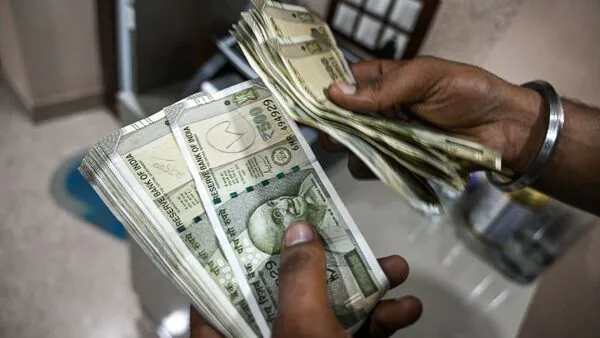
Festive Cheer: Govt Hikes DA, Crop Prices In ₹1.2 Trillion Push
In a festival-season bonanza, the Union cabinet approved a 3% increase in the dearness allowance (DA) and dearness relief (DR) for central government employees and pensioners.
Effective 1 July, the DA stands at 58% of the basic pay, and would benefit about 4.92 million employees. Similarly, the DR would benefit 6.87 million pensioners of the government, Ashwini Vaishnaw, minister for information and broadcasting, told media after the cabinet meeting. The increase in DA and DR would cost the government about ₹10,084 crore.
This move comes as another demand-boosting measure by the government ahead of Diwali. Earlier, the government rationalized the GST regime into a mainly two-rate structure - 5% and 18% - by abolishing the 12% and 28% rates, in a consumption stimulus estimated at ₹2 trillion. The new GST regime came into effect on 22 September.
Also Read | India-US trade talks: Nuclear energy gives India a strategic trump card Pulses mission launchedThe government approved the 'Mission for Aatmanirbharta in Pulses', which aims to make India self-reliant in pulses and reduce dependence on imports. Vaishnaw said that the centrally-sponsored scheme will involve an outlay of ₹11,440 crore for a total period of six years.
Under this mission, the government has assured 100% procurement of three pulses -tur, urad and masoor-produced by farmers who are registered with procurement agencies like NAFED.
Under the mission, the government will provide farmers quality seeds, and train them to help boost pulses output.
A total of 416 districts have been identified where pulses cultivation would be undertaken through a cluster-based approach. The mission also aims to expand the area under cultivation by 35 lakh hectares from the current 275 lakh hectares to 310 lakh hectares.
Also Read | India, US close to wide-ranging trade deal, skip patents MSP rates raisedThe government also announced minimum support price (MSP) for six Rabi , or winter crops for the marketing season 2026-2027. The highest increase in MSP has been made for safflower at ₹600 per quintal, followed by ₹300 per quintal for lentil. The rates for rapeseed and mustard, gram, barley and wheat have been increased by ₹250, ₹225, ₹170, and ₹160 per quintal, respectively.
After the increase, the MSP of safflower stands at ₹6,540 per quintal. The minimum support price of wheat has been hiked by ₹160 and fixed at ₹2,585 per quintal.
Wheat is the largest foodgrain grown during the rabi season and its MSP has been raised by nearly 6.6%. Among other crops, the MSP for mustard has been raised to ₹6,200 per quintal while that of lentil (masur) to ₹7,000 per quintal. The MSP for gram has been raised to ₹5,875 per quintal. Also, the MSP for barley has been increased by to ₹2,150 per quintal.
Among other major decisions, the cabinet approved the setting up of 57 new Kendriya Vidyalaya schools in the country, out of which seven would be sponsored by the Union ministry of home affairs, and fifty by state governments.
Also Read | With Indus Water Treaty on ice, J&K's mega hydro push powers aheadThe cabinet committee on economic affairs has approved the widening and improvement of existing carriageway to four-lane of Kalibor-Numaligarh section of NH-715, including implementation of wildlife-friendly measures proposed on Kaziranga National Park (KNP) stretch in Assam. The project will be developed in engineering, procurement and construction (EPC) mode with a total length of 85.675 km and total cost of ₹6,957 crore.
The phase-III of the Biomedical Research Career Programme (BRCP), with an oulay of ₹1,500 crore, also got the cabinet's approval. The programme, implemented in partnership between the Department of Biotechnology (DBT) and the Wellcome Trust (WT), UK, and the SPV, India Alliance, will service fellowships and grants approved till 2030-31, at a total cost of ₹1,500 crore.
According to an official statement, the research fellowships, collaborative grants and the research management programme with pan-India implementation is expected to drive scientific excellence, skill development, collaboration, and knowledge exchange.
“Phases I and II positioned India as an emerging hub for biomedical science of international standing. India's rising investment in science and its growing role in the global knowledge economy demand a new phase of strategic effort. Building on the gains of earlier Phases, Phase-III will invest in talent, capacity, and translation aligned with national priorities and global benchmarks,” it said.
Legal Disclaimer:
MENAFN provides the
information “as is” without warranty of any kind. We do not accept
any responsibility or liability for the accuracy, content, images,
videos, licenses, completeness, legality, or reliability of the information
contained in this article. If you have any complaints or copyright
issues related to this article, kindly contact the provider above.

















Comments
No comment